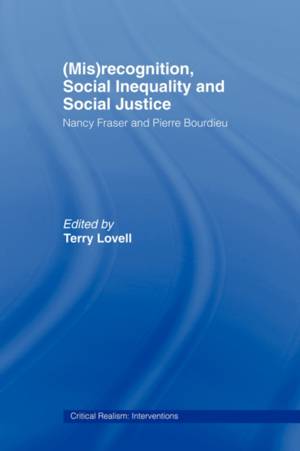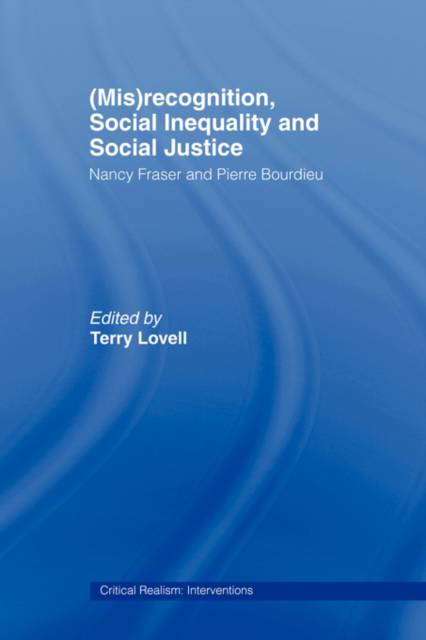
- Retrait gratuit dans votre magasin Club
- 7.000.000 titres dans notre catalogue
- Payer en toute sécurité
- Toujours un magasin près de chez vous
- Retrait gratuit dans votre magasin Club
- 7.000.0000 titres dans notre catalogue
- Payer en toute sécurité
- Toujours un magasin près de chez vous
(Mis)Recognition, Social Inequality and Social Justice
Nancy Fraser and Pierre Bourdieu
Description
Nancy Fraser's work provides a theory of justice from multiple perspectives which has created a powerful frame for the analysis of political, moral and pragmatic dilemmas in an era of global capitalism and cultural pluralism. It has been developed through dialogue with key contemporary thinkers, including an extended critical exchange with Axel Honneth that touches importantly upon the work of the late Pierre Bourdieu on social suffering.
This collection of essays considers some of the conceptual and philosophical contentions that Fraser's model has provoked and presents some compelling examples of its analytical power in a range of contexts in which the politics of social justice are at issue, including the politics of justice in South Africa, and social policy. It includes essays on queer theory and the paradoxical effects of gay marriage and civil partnerships on the imbalance in the social composition of UK parliamentary representation, and on the significance of class.
Spécifications
Parties prenantes
- Editeur:
Contenu
- Nombre de pages :
- 224
- Langue:
- Anglais
- Collection :
Caractéristiques
- EAN:
- 9780415464949
- Date de parution :
- 01-02-08
- Format:
- Livre broché
- Format numérique:
- Trade paperback (VS)
- Dimensions :
- 156 mm x 234 mm
- Poids :
- 317 g

Les avis
Nous publions uniquement les avis qui respectent les conditions requises. Consultez nos conditions pour les avis.





